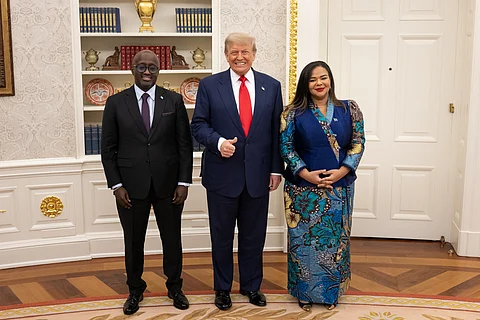

Rwanda and the Democratic Republic of Congo has signed a landmark U.S.-mediated peace agreement in Washington, aiming to halt decades of conflict that has claimed thousands of lives and displaced countless others.
The deal, signed by the foreign ministers of both nations at a ceremony with U.S. Secretary of State Marco Rubio, commits to a 90-day timeline for Rwandan troop withdrawal from eastern Congo and the establishment of a regional economic integration framework.
The agreement, dubbed the "Washington Accord" by Trump adviser Massad Boulos, seeks to stabilize the region while opening doors for Western investment in Congo’s vast mineral resources, including tantalum, gold, and cobalt.
The accord outlines a joint security coordination mechanism to be formed within 30 days and supports ongoing Qatar-hosted talks to address the M23 rebel group’s activities, which escalated earlier this year with the capture of key Congolese cities.
Congo and Rwanda also pledged to de-risk mineral supply chains, fostering value chains in partnership with U.S. investors.
“This is the best chance we have at a peace process for the moment despite all the challenges and flaws,” said Jason Stearns, a political scientist specializing in the region.
The deal’s economic focus aims to secure investments by stabilizing eastern Congo, though analysts like Tresor Kibangula caution that its success hinges on implementation.
Despite the optimism, the agreement faces hurdles.
Past deals have faltered, and Rwanda denies supporting the M23 rebels, despite evidence suggesting at least 7,000 Rwandan troops are in Congo.
Congolese demands for immediate troop withdrawal were softened to “disengagement,” a term Rwanda prefers.
Unresolved issues include the M23’s withdrawal from occupied areas, the disarmament of the FDLR militia, and the safe return of refugees.
“It remains to be seen whether this economic logic will suffice,” Kibangula noted.
With heads of state expected to finalize further agreements soon, the U.S. is tasked with ensuring both nations adhere to the accord’s terms, under the threat of severe penalties for violations.